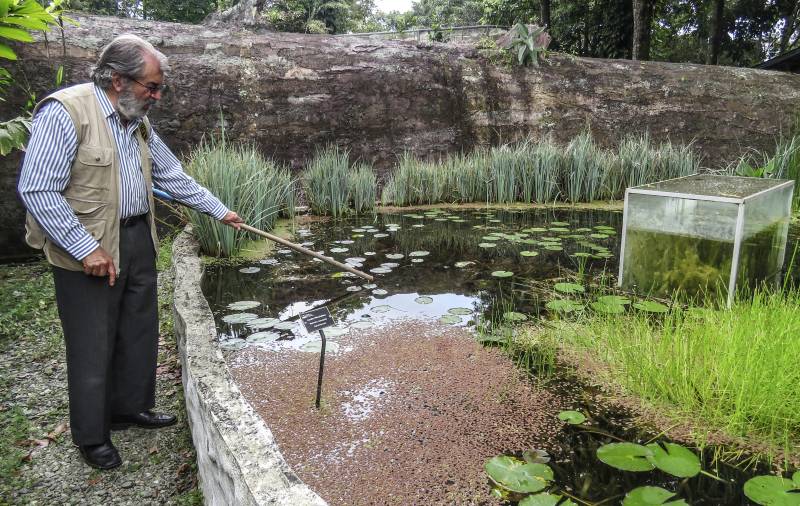Gardener uses Colombia lockdown to save botanical paradise

Stay tuned with 24 News HD Android App

When the coronavirus pandemic swept through Colombia in March, forcing a national lockdown, Alberto Gomez decided he would sit it out amid the lush green foliage of his botanical garden and tend to his plants.
Colombia is one of the most biodiverse countries in the world, a fact that prompted Gomez, 72, to establish an ecological park more than 40 years ago on the Andean slopes of the northeastern Quindio department.
"It was easier to cope with the pandemic quarantine locked up here in 14 hectares of premontane forest of high ecological biodiversity," Gomez, white-haired and with a scraggly grey beard, told AFP.
Far from his family in the capital Bogota, and with his 30 staff members in lockdown, Gomez is striving alone to keep his life's work from being swallowed up by the voracious Andean forest.
With his staff confined to their homes, Gomez has had to adapt to being chief gardener, guard, cleaner and administrator as he waits for his ecological centre to reopen to tourists.
As well as "dictator," he laughs: "Because here, not a leaf moves without my consent."
He went to the banks for help to keep paying his employees' salaries, he said, before launching a cry for help on social media.
"I gave birth to this garden, to put it graphically," he said. And rather than watch his dream wither, the crisis pushed him to renew himself.
"We reinvented ourselves, as they say now," he says, laughing.
A video he made as part of his campaign called "SOS for the Quindio Botanical Garden" invites people to buy trees, sponsor plants and sections of the park, and support projects with donations.
On farmland nearby, his employees had planted more than 70,000 specimens from 37 species of native plants, and Gomez was able to pay the salaries in May and June from the sales.
So far, his botanical paradise is surviving, he says, "in the midst of the chaos of deforestation, degradation of ecosystems, global warming and the extinction of native species."
A lawyer by profession, the law allowed him to provide for his family as he built up his botanical garden over decades.
"I entered a fascinating world. As the Spanish say, it was like discovering another Mediterranean," he said.
There is a lot to admire, and maintain, in the Quindio park: rare orchids, bromeliads, laurels, aquatic and medicinal plants, but also a geology and soil museum, an insect zoo, a butterfly garden, a reference library, an auditorium and a movie theatre.
He built it and people came. Pre-pandemic, some 60,000 a year visit the centre, located in the coffee-growing district of Calarca.
When FARC guerrillas signed a peace agreement in 2016, bringing Colombia's longest-running conflict to an end, "we increased foreign visitors from 5 percent to 20 percent. But now, the quarantine has destroyed tourism."
- 'Ecological destruction' -
A chorus of birdsong is Gomez's daily wake-up call, at 5:00 am. "The symphony begins and I get up," he says.
Colombia is home to nearly 2,000 species of birds, and he has identified 176 species in his park.
As president of Colombia's National Network of Botanical Gardens of Colombia, Gomez says he feels an enormous weight of responsibility.
"The task of saving Colombia from ecological destruction is extremely urgent, and we cannot wait ever for our children to do it, we must do it now."
Around 9:30 pm, he ends his working day with a coffee. "During this pandemic, every day is the same for me. There's no difference between Sunday and Monday."
In his lockdown paradise, his mind swarms with ideas for new projects for his park as he awaits the return of tourists.
"The only thing forbidden in this garden is to stop dreaming," the botanist says.
